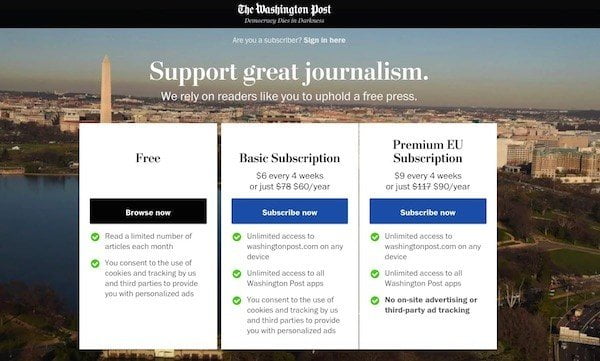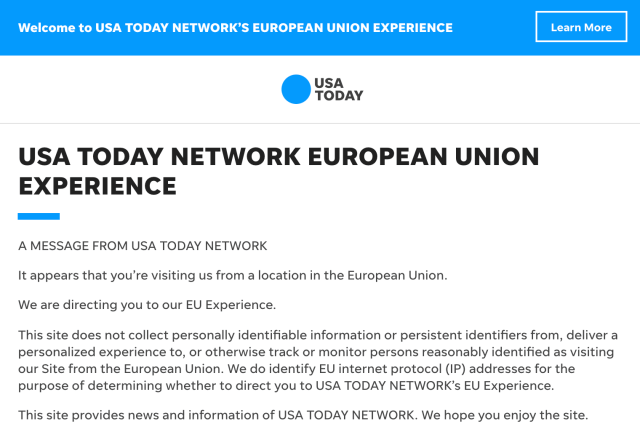It’s finally here. The effects of GDPR came into effect last week on May 25th, 2018. Companies have scrambled to ensure they meet compliance standards, as they do not want to be hit with heavy fines. Here a few methods that we found particularly interesting:
1. Block European Visitors
The Los Angeles Times has taken a direct approach to compliance. It’s simply blocked all visitors from countries within the European Union. This ensures they remain compliant, but at what cost?

This approach demonstrates to users that the publication didn’t properly prepare for the new regulations, leading to a loss of trust in the Los Angeles Times. Furthermore, according to the Colombia Journalism Review, European regulators have criticized this approach because they claim publishers had plenty of notice to conform to the new rules. Blocking users may work as a temporary solution to complying with effects of GDPR. In the long run though, it’s going to have a negative impact on the publication.

2. Charge European Visitors
vThe Washington Post is taking a bold approach to compliance. Instead of blocking European citizens from viewing their website, they have decided to charge them for an ad-free and tracking free experience.

This approach has many wondering if it meets compliance standards. Some say private companies can make access to their services conditional upon the consent of data subjects while others say that GDPR forbids this type of behavior.
At this point, it is unclear how regulators will respond to such an approach to compliance. The effects of GDPR enforcement is underway, the Washington Post will serve as a case study for others. It will help determine if their approach violates GDPR by forcing consent for data tracking.
3. Strip Website of Ads
USA Today is offering a new website experience for its European users. This website is free of ads and includes no tracking. Some have claimed it offers a better user experience and has praised the publication for taking this approach.

That being said, it is uncertain whether USA Today will continue to do this for very long since many publications rely on ad revenue to stay afloat in this day and age. Publishers must figure out ways to fund their operations while remaining transparent about data use under GDPR.